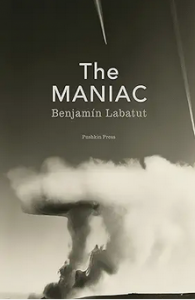I’ve *thoroughly* enjoyed The Maniac by Benjamin Labatut (as I did his first, When We Cease to Understand the World). It’s a sort of fictionalised biography of John von Neumann, although very different from a non-fictional biography – like the excellent The Man From The Future by Ananya Bhattacharya – in taking some liberties. The structure is a series of short memory snapshots by people who had known him – his daughter, his 2nd wife, colleagues like Wigner and Morgenstern – with (generally unflattering) perspectives on both the man and the work.
In recent years I’ve been increasingly obsessed with the influence of early 20th century middle European/Vienna circle thought in sumperimposing the positivist/normative dualism on Cartesian dualism. This has given economics – among other modern intellectual disciplines – both its analytical strength and its massive limitations. At its heart are Godel’s incompleteness theorems: the point of The Maniac is to link this question to the modern world of computation and AI. Can AI ever become ‘alive’ or think for itself? Well do you believe Gödel applies to a Turing machine with the Von Neumann architecture – or not? Labatut’s novel ends with Von Neumann dying of the cancer that eventually destroyed his extraordinary intelligence, and leaving the reader wondering whether the great man’s late obsession with computation and the evolution of life was an early sign of madness, or brilliance.
I enjoyed also Stephen Budiansky’s biography of Godel, Journey to the Edge of Reason. And recently listed some other books I’ve read of late on positivism and its discontents. By coincidence I’m also partway through Sergii Plokhy’s Atoms and Ashes, which starts with the US race to detonate hydrogen bombs after the war, and the fallout from the Ivy Mike test – and also can thoroughly recommend Philippe Sands book, The Last Colony, about the Marshall Islanders’ long journey through the international courts for compensation. (I don’t watch movies in general but should maybe make an exception for Oppenheimer.)

